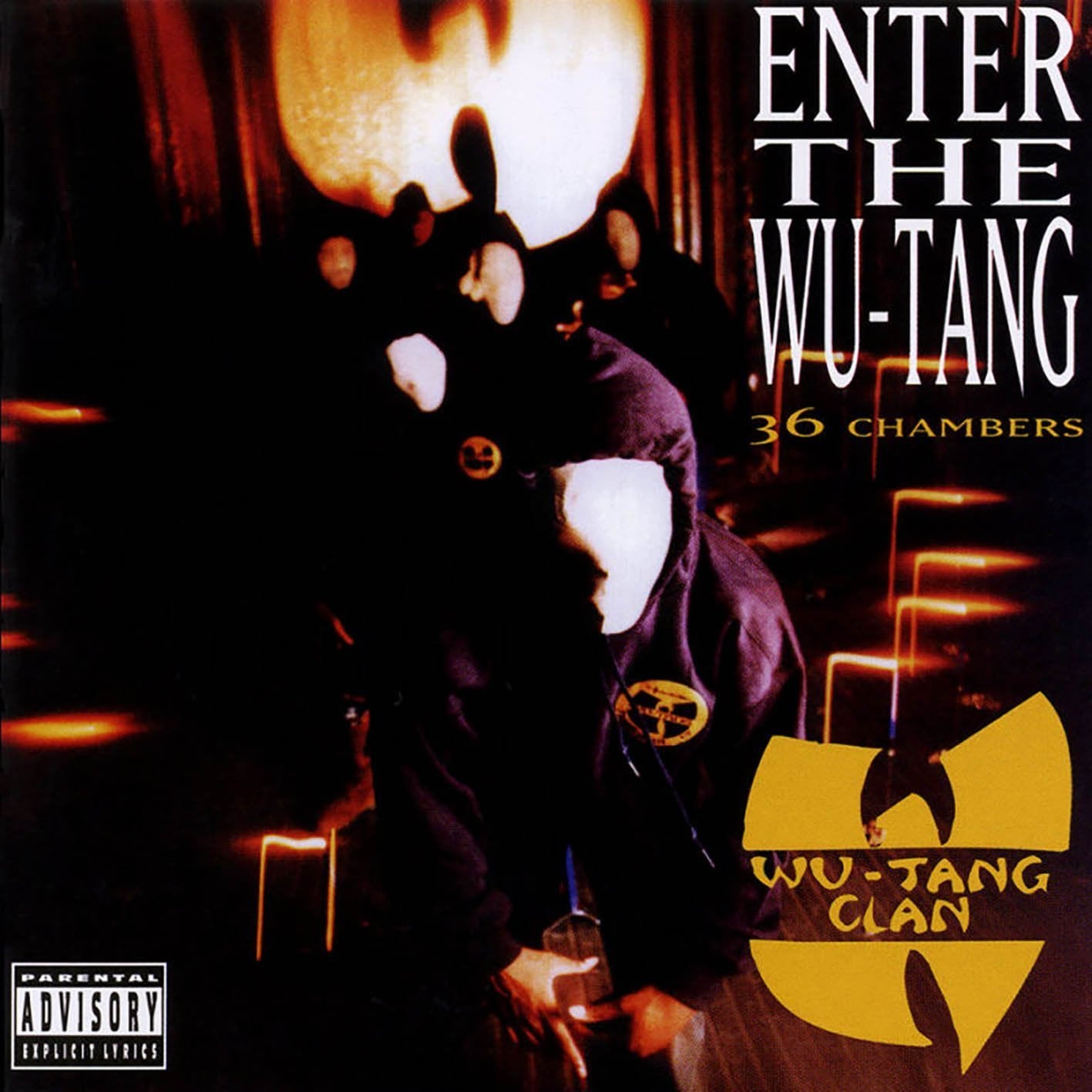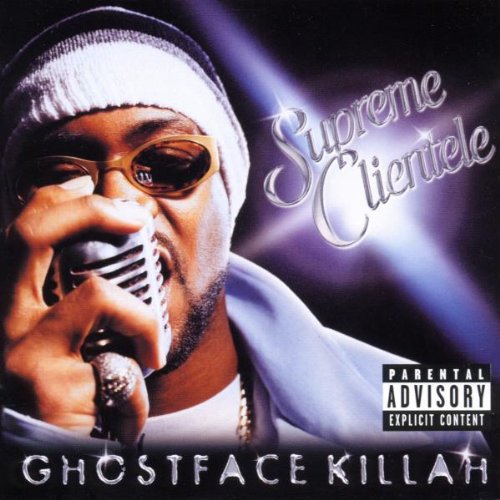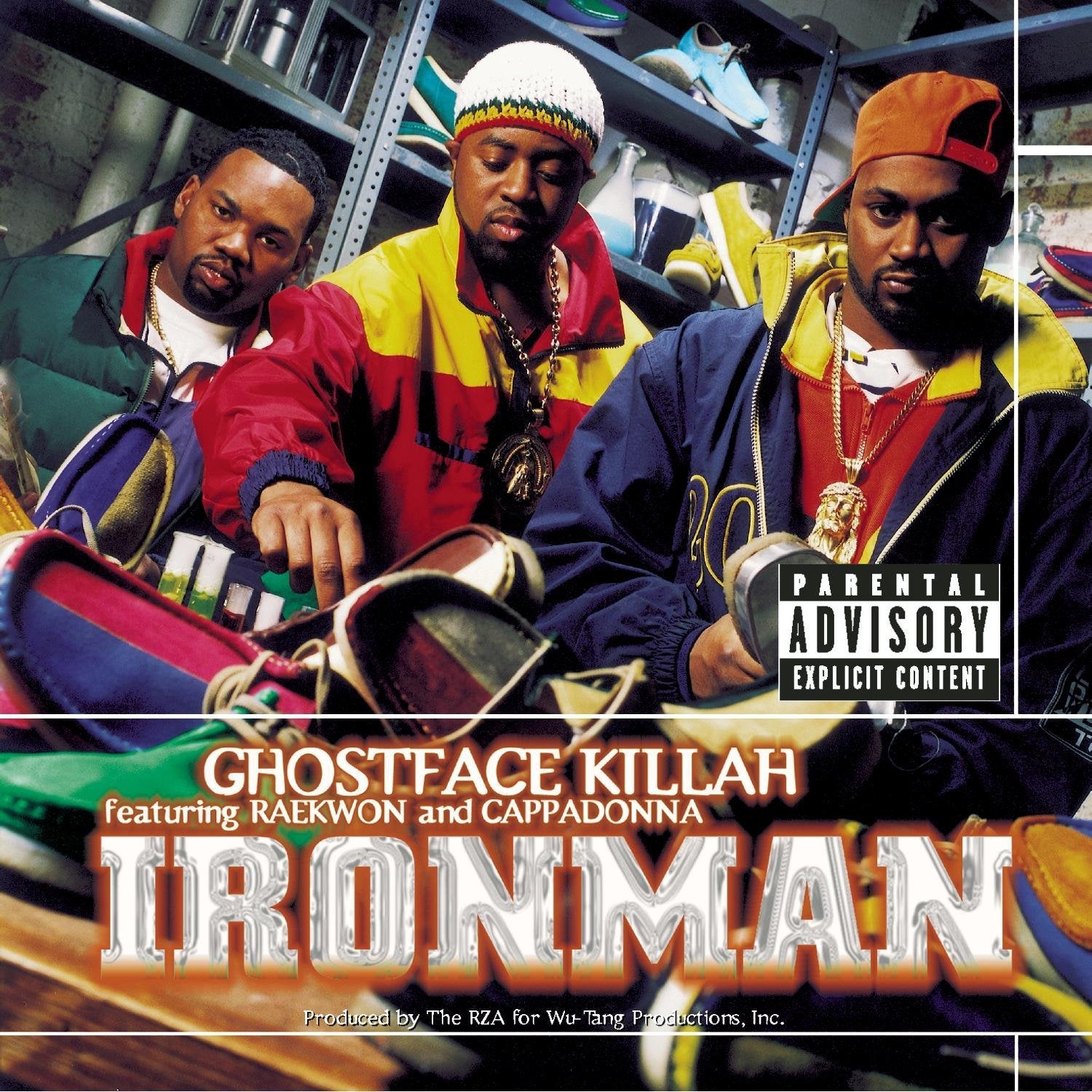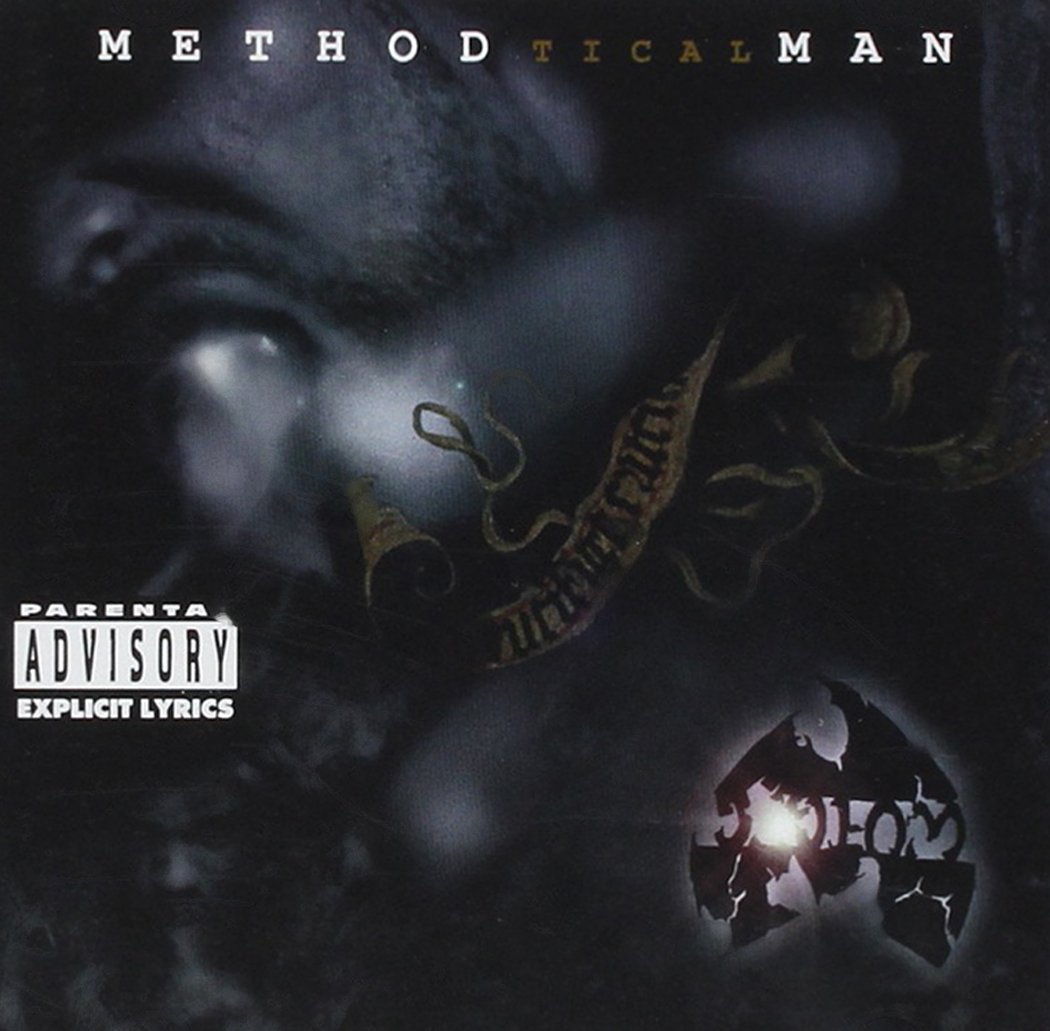The Wu came through and the outcome was critical. The Wu-Tang Clan put out six proper group albums along with countless solo projects, affiliate albums, an unreasonably difficult video game and a clothing line that maybe didn’t seem as cool once your dad borrowed your Wu Wear sweatshirt to rake leaves.
Even if all the peripherals didn’t quite last, the Wu-Tang Clan’s music hasn’t dulled any of its vibrancy in the 20-plus years since the group first appeared. Though the Clan’s collective output has slowed and recent outings like Banks & Steelz – RZA’s collaborative project with Interpol’s Paul Banks – lack the brick-splitting force of the Wu’s best material, the back catalog is still littered must haves. Here are 10 of the most essential Wu-Tang albums to own on vinyl.

Wu-Tang Clan: Enter the Wu-Tang (36 Chambers)
So many of the great hip-hop groups seem to come in threes – Geto Boys, Run-DMC, De La Soul – but Wu-Tang Clan set a new precedent for size and relevancy with its nine members. The solo careers that followed the Wu’s 1993 debut varied in degrees of success, and Method Man and GZA received more individual shine on Enter the Wu-Tang, but tracks like “Da Mystery of Chessboxin’” got almost everyone involved. The group dynamic was so sharp and RZA’s ramshackle production so lacerating, that the Wu mythology and narrative couldn’t help but enter the bloodstream. Of all the music produced by the prolific Wu-Tang Clan, this album is the most essential.
You can get the VMP exclusive edition of 'Enter the Wu-Tang (36 Chambers)' here.

Ghostface Killah: Supreme Clientele
With Supreme Clientele, Ghostface pulled off the unprecedented feat amongst his Wu affiliates of improving on his stellar debut record. For an album that doesn’t even touch on a single until track six, Clientele feels remarkably frontloaded. The rubbery one-two bounce of “Nutmeg” and “One” impacts the cranium and by the time you’ve remembered what eight ravioli bags means, you’re in the middle of the joyous “Apollo Kids.” Ghostface’s impossible lyrical ingenuity and storytelling is the star, but he gets memorable guest spots from RZA – who handles much of the production – as well as Raekwon, Cappadonna and U-God, who teams with Madam Majestic and Carlos Bess to create something timeless in “Cherchez La Ghost.”

GZA: Liquid Swords
If Ghostface seemed like the celebratory id of Wu-Tang, then GZA was its sober ego. The Genius strategically doles out stoic wisdom on Liquid Swords, his grimy sadness-tinged masterpiece that’s rightly been described by many as the purest distillation of the core Wu-Tang aesthetic. But for a guy who painted such a terrifying bleak picture on “Cold World,” GZA was surprisingly funny throughout Liquid Swords. On the propulsive “Shadoxboxin,’” he compares his battle rap prowess to poofy haired wrestler Ken Patera and, at multiple points, he calls out people for outdated fashion choices like Zodiac signs on sweatshirts and too many silver chains.

Raekwon: Only Built for Cuban Linx
Raekwon wanted his debut to play like a film with him as the star and RZA as the director. Only Built for Cuban Linx succeeded as a cohesive experience, helped push forward Mafioso rap, and began a rich tapestry of Ghostface and Rae appearing on covers together. Ghost shows up on a dozen of the tracks, Cappadonna debuts on “Ice Cream” declaring he loves you like his dick size, and Nas – in a rare guest spot from a non Wu affiliate – completely annihilates “Verbal Intercourse.” But Raekwon’s uncommonly luxurious and measured style throughout steadies the entire album from tilting too far into melodrama or caricature.

Ol’ Dirty Bastard: Return to the 36 Chambers
Going raah, raah like a dungeon dragon, Ol’ Dirty Bastard fulfilled the wildstyle quotient for the Wu-Tang by becoming the Clan’s drunken master. On Return to the 36 Chambers, behind one of the most brilliant album covers ever, ODB comes out staggering through “Shimmy Shimmy Ya,” having you worried if he’s OK before you realize he’s handling the chorus plus cutting heads with the verses. He predated codeine rap, but his hazy, woozy style, particularly on the seasick “Raw Hide,” had to have informed the next-generation of lean-inspired hip-hop.

Ghostface Killah: Ironman
Not unlike Cuban Linx, Ironman is a marathon length album and it serves as yet another Ghostface and Raekwon shared outing – Raekwon even gets a solo track, “The Fastest Blade.” But it is Ghost’s vivid narratives and kinetic rhyme style that glues the entire experience together. It’s not surprising that Ghost would sound at home on a classic RZA-style production like “Winter Warz” but it speaks to his flexibility and dexterity that he could stand out on a headrush like “Daytona 500” and, minutes later, get misty eyed on his lovely painted tribute to his mother “All That I Got is You.”

Method Man: Tical
With the distinction of being the first official Wu-Tang solo record – not counting GZA’s album before Enter the Wu-Tang –Tical perhaps bore the burden of setting a template. Considering his early-on star status within the group, it makes sense Method Man would be the first to break out on his own. Despite Meth’s outsized charisma on tracks like “Biscuits” and RZA’s production on woozy bangers like “Bring the Pain,” Tical isn’t often slotted next to the unquestionable Wu-Tang classics. Maybe it's because he carried so much of the album alone when battle raps like “Meth vs. Chef” emerged as highlights, but Method Man’s first and best solo album deserves a spot on any shelf if only for the triumphant “Release Yo’ Delf.”
You can get the VMP exclusive edition of 'Tical' here.

Inspectah Deck: Uncontrolled Substance
Inspectah Deck lost the most in RZA’s flood. His entire first album was wiped out, resulting in his debut Uncontrolled Substance, that didn’t surface until years later, being an entirely different record. Once it did hit in 1999, according to Deck, he had to deal with promoting an album with little Wu support from the likes of RZA and Method Man while operating in the shadow of Raekwon’s Purple Tape. Despite the troubles that held up the album, Substance showed up a collection of solidly built beats featuring skillful MCs, from the posse cut “9th Chamber” to the Pete Rock-produced “Trouble Man.”
You can get the VMP exclusive edition of 'Uncontrolled Substance' here.

Gravediggaz: 6 Feet Deep
RZA wasn’t even a year removed from masterminding one of the most indelible hip-hop debuts when he decided to mess around a conquer horrorcore rap with the rest of the Gravediggaz. Much of the production is handled by Prince Paul, and the Gatekeeper and the Grym Reaper come through with as many it not more of the rhymes, but you’d be hard pressed to find a more memorable moment than “Diary of a Madman.” RZA co-produced the track, which is framed as the Gravediggaz pleading insanity before a judge in a murder case, and he steals the show when he ends his verse describing being tortured in a tabernacle by proclaiming he “chewed his fucking arm off and made an escape.”
You can join the waitlist for the VMP exclusive edition of '6 Feet Deep' here.

Wu-Tang Clan: Wu-Tang Forever
If you ran out to buy Wu-Tang Forever the day it dropped, the initial dread at unpacking the huge double album may have translated as disappointment. It was almost 30 tracks, some of them with nine verses, and “Triumph” didn’t even show up until disc two. Once you steeled yourself to dig in, Forever showed itself as an expansive if slightly less gritty take on atmosphere created on Enter the Wu-Tang. Part of that could probably be attributed to the floods that struck RZA’s studio and wiped out countless beats. But it’s also possible that Wu-Tang was getting too big to keep recording in their founder’s basement. Either way, this album contains “It’s Yourz” and “Dog Shit” so it’s a vital piece of any collection.
Ben Munson is a writer and editor based in Madison, Wisconsin. He awaits the day he can pass his Beatnuts albums down to his daughter.
Related Articles
Join the Club!
Join Now, Starting at $44Exclusive 15% Off for Teachers, Students, Military members, Healthcare professionals & First Responders - Get Verified!




